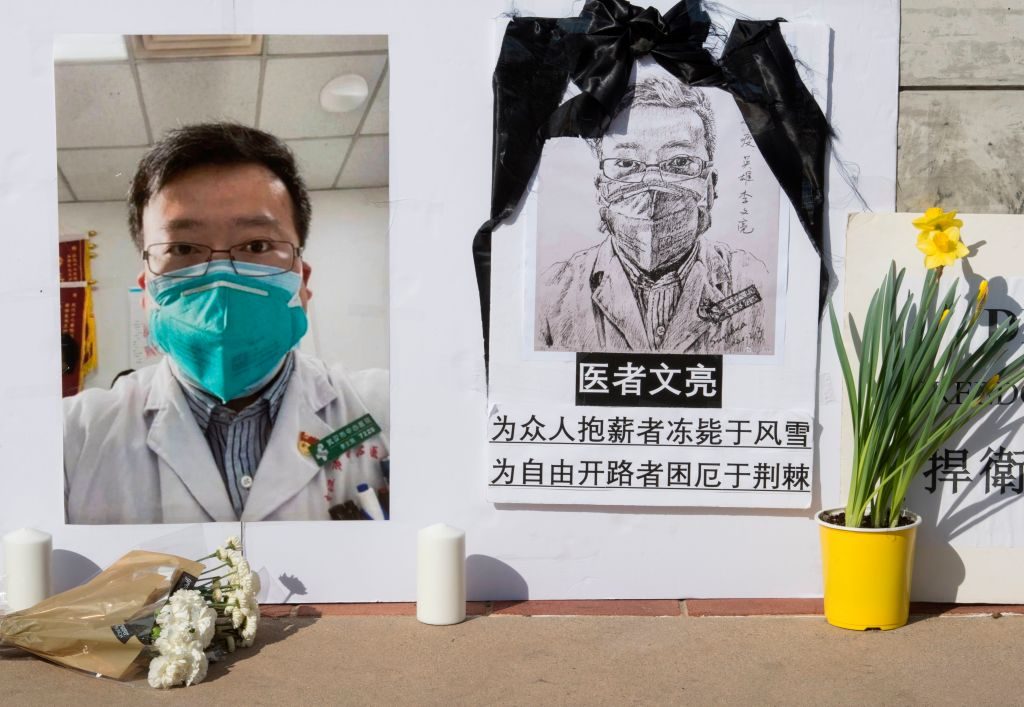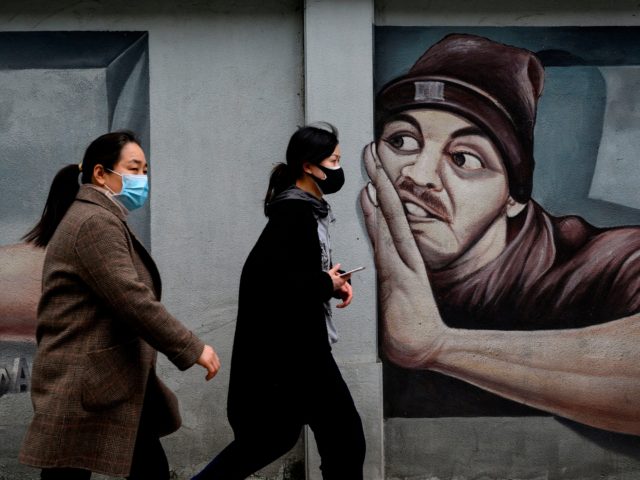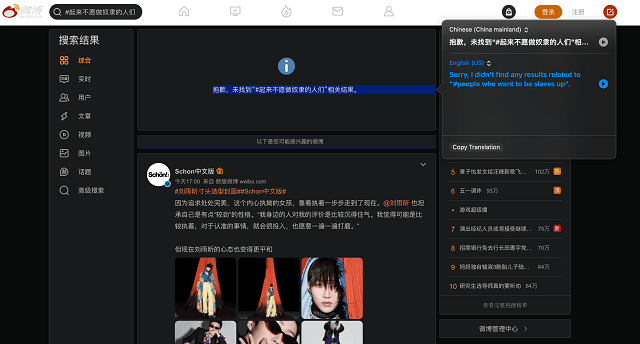Sina Weibo, the heavily censored Chinese alternative to banned Twitter, appears to have banned a hashtag that quotes the Chinese national anthem to criticize coronavirus lockdowns. It also appears to have blocked searches for the lyrics to the anthem.
The banned hashtag is based on the first line of the anthem: “Stand up! Those who refuse to be slaves!” The line is rendered with several variations in English such as, “Arise, you who refuse to be slaves!”
Weibo users reportedly filled the hashtag with complaints about the brutal coronavirus lockdowns imposed on Shanghai and other cities:
Breitbart News independently verified that searches for the hashtag on Weibo are returning zero results, even though it accumulated a large number of posts from angry Chinese “netizens” (as their rulers are fond of calling them, when they say things the Chinese Communist Party approves of).
According to a report at Insider on Monday morning, Weibo is also censoring posts from users who noticed the lyrics to the national anthem have been blocked from search results.
A Weibo post that allegedly asked, “how do you sing the first line of the national anthem?” was erased after accumulating over 11,000 “likes” and sarcastic responses from users, including one who wondered if the Chinese government might want to change its name after censoring its own anthem. The angry posts allegedly referenced or tagged Shanghai frequently.
Insider noted that Weibo also appears to be censoring posts that discuss food shortages in Shanghai, including pleas for help from starving residents of the incarcerated city.
This is not the first time China has censored references to its own national anthem made by citizens angry about coronavirus lockdowns. The same thing happened in early 2020 after the death of Li Wenliang, a whistleblower doctor arrested and punished by the Chinese government when he tried to give an early warning about the strange new disease spreading through Wuhan.
Li’s “offense” was writing a post in a WeChat group – to other doctors, not to the public – advising Wuhan doctors to wear protective clothing when treating all of their patients. He was arrested for “making false comments” that “severely disturbed the social order.” He died soon afterward, ostensibly from the same virus he tried to warn about. The anniversary of his fateful Weibo post has become an occasion for unhappy Chinese citizens to complain about their oppressive government.

A memorial for Dr Li Wenliang, who was the whistleblower of the Coronavirus, Covid-19, that originated in Wuhan, China and caused the doctors death in that city, is pictured outside the UCLA campus in Westwood, California, on February 15, 2020. (MARK RALSTON/AFP via Getty Images)
The first line of the Chinese anthem was widely quoted in anger after Li’s death in February 2020, and the Communist Party responded by blocking searches for the “those who refuse to be slaves” phrase, much as it appears to be doing today.
Shanghai remains in desperate shape, as local officials admitted to the first three coronavirus deaths of the current outbreak on Monday. According to local officials, all three were elderly and unvaccinated. Both international observers and Shanghai residents pointed to the improbably low death toll as evidence the Chinese government is systematically lying about the extent of the outbreak.
Shanghai residents are increasingly terrified of testing positive, even if they have no symptoms, and getting hauled off to one of the city’s hundred or so grim “quarantine centers,” where they experience poor living conditions, minimal food, no privacy, lights that are never turned off – and crowded environments peppered with visibly sick people that give them an excellent chance of contracting a more serious case of the highly contagious omicron variant of Chinese coronavirus.


COMMENTS
Please let us know if you're having issues with commenting.